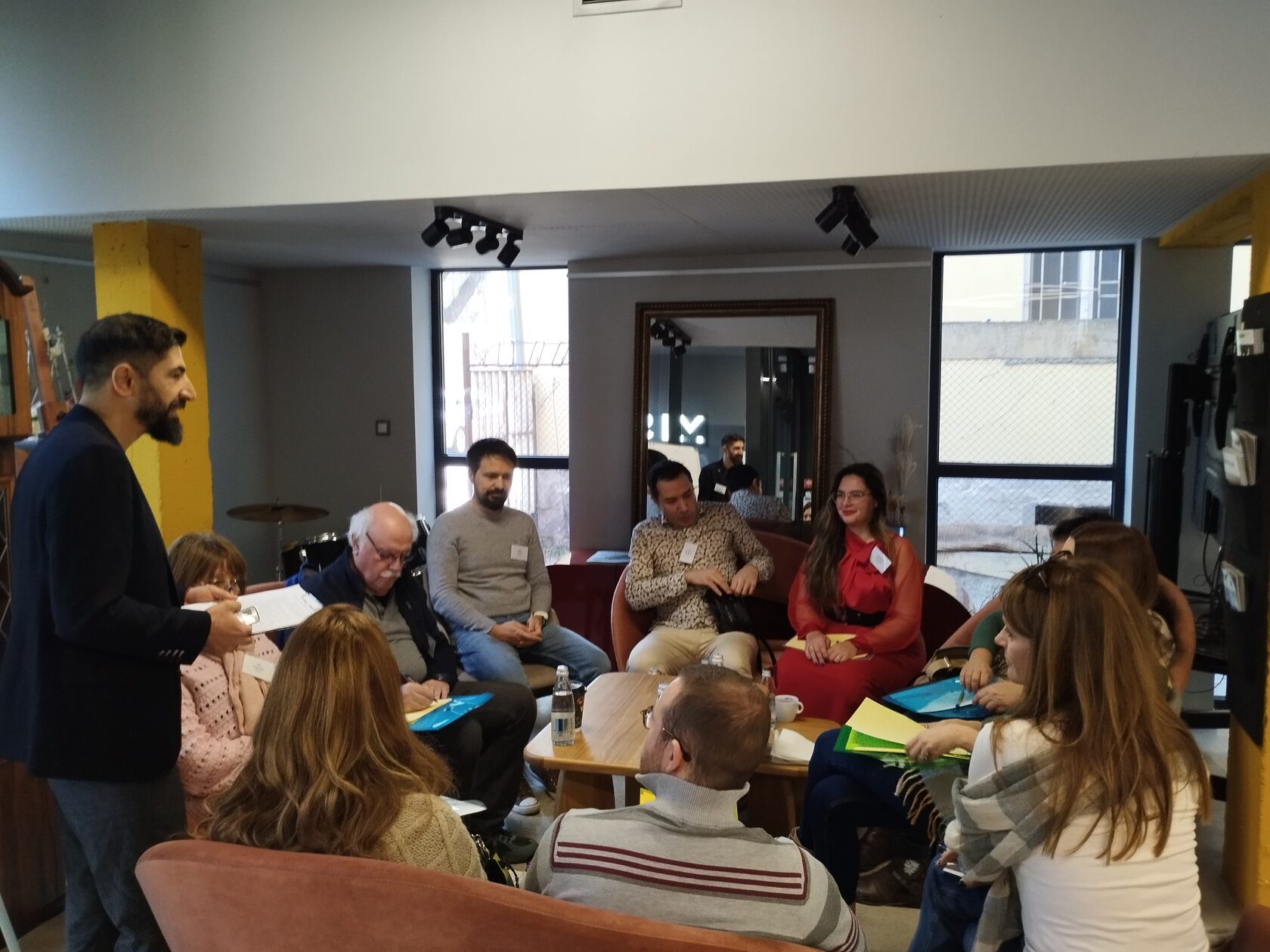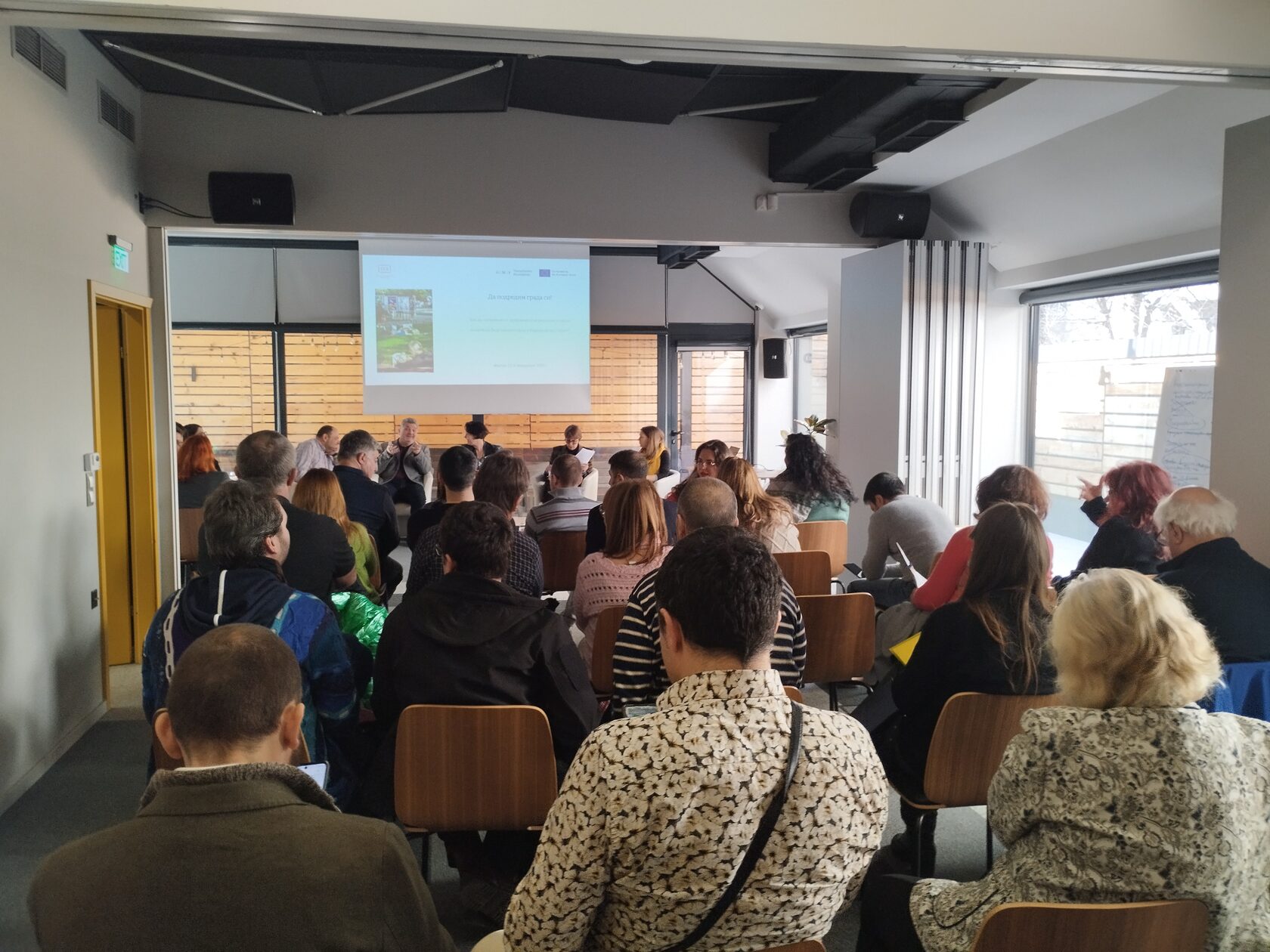How to engage citizens in the development of their own city? How to convince politicians and local authorities to listen to the voice of citizens for our collective future? How do we make a city welcoming for everyone?
With these questions, our project wants to conduct a public debate on urban policies with citizens, selected by socio-demographic characteristics, so that they are representative of the residents of Sofia. The debate seeks to put in relation the different attitudes of these "representative" citizens, but also to provoke them to propose public policies for local problems that they themselves define as important.
With these questions, our project wants to conduct a public debate on urban policies with citizens, selected by socio-demographic characteristics, so that they are representative of the residents of Sofia. The debate seeks to put in relation the different attitudes of these "representative" citizens, but also to provoke them to propose public policies for local problems that they themselves define as important.
The Sofia 100 project is based on the understanding that successful urban policies are based on dialogue with citizens and are implemented by reaching compromise and agreement between the different people inhabiting a city. Following a series of expert meetings with sociologists, anthropologists and urban management specialists, the project team developed a discussion format in which citizens of the capital city, selected to best match the socio-demographic structure of Sofia's population, took part. The debate illustrated the different attitudes of these "representative" citizens, but also challenged them to propose public policies for local issues that they themselves identified as important.
The goals we set for the debate are: 1) to draw public attention to inclusive urban policies; 2) to engage citizens with inclusive policies; 3) to engage in active advocacy for inclusive public policies at the city level.
The goals we set for the debate are: 1) to draw public attention to inclusive urban policies; 2) to engage citizens with inclusive policies; 3) to engage in active advocacy for inclusive public policies at the city level.
The goals we set for the debate were: 1) to draw public attention to inclusive urban policies; 2) to engage citizens with inclusive policies; 3) to engage in active advocacy for inclusive public policies at the city level.
The civic discussion, "(RE) DIY CITY", set the stage for an interactive debate among participants. They were divided into groups in which they articulated the main issues facing the city. Two major problems for our capital city were highlighted- urban overbuilding and air pollution. Denitsa Hinkova - expert on public policies, economist Georgi Ganev and the mayor of Lozenets district Konstantin Pavlov took part in the discussion. In the second part of the discussion the citizens had the opportunity to work in groups and present concrete ideas and initiatives that could be taken to improve the urban environment.
Our colleagues from Alpha Research assisted the CLS team by conducting a quantitative survey among a mini representative sample for the capital. It was conducted in two phases - before and after the civic discussion, the idea being to test some of the hypotheses formulated during the talks.
The civic discussion, "(RE) DIY CITY", set the stage for an interactive debate among participants. They were divided into groups in which they articulated the main issues facing the city. Two major problems for our capital city were highlighted- urban overbuilding and air pollution. Denitsa Hinkova - expert on public policies, economist Georgi Ganev and the mayor of Lozenets district Konstantin Pavlov took part in the discussion. In the second part of the discussion the citizens had the opportunity to work in groups and present concrete ideas and initiatives that could be taken to improve the urban environment.
Our colleagues from Alpha Research assisted the CLS team by conducting a quantitative survey among a mini representative sample for the capital. It was conducted in two phases - before and after the civic discussion, the idea being to test some of the hypotheses formulated during the talks.
The results of the survey and the report of Alpha Research can be found here in Bulgarian.
A summary of the main findings can be found here in Bulgarian.
The ultimate goal of our project is to convince public institutions at local level to adopt and put into practice the policies formulated by citizens. We are convinced that this is the step for citizens to engage in the political process in the long term and participate in building an authentically inclusive society.
A summary of the main findings can be found here in Bulgarian.
The ultimate goal of our project is to convince public institutions at local level to adopt and put into practice the policies formulated by citizens. We are convinced that this is the step for citizens to engage in the political process in the long term and participate in building an authentically inclusive society.
The project is co-funded by the European Union. The views and opinions expressed are solely those of the author(s) and do not necessarily reflect those of the EU or the Education and Culture Executive Agency. Neither the EU nor the organisations providing it can be held responsible for them.




Period: October 2023 - February 2025
Coordinators: Milla Mineva, Kaloyan Velchev
Financing Organisations: the Transatlantic Foundation and the European Union
